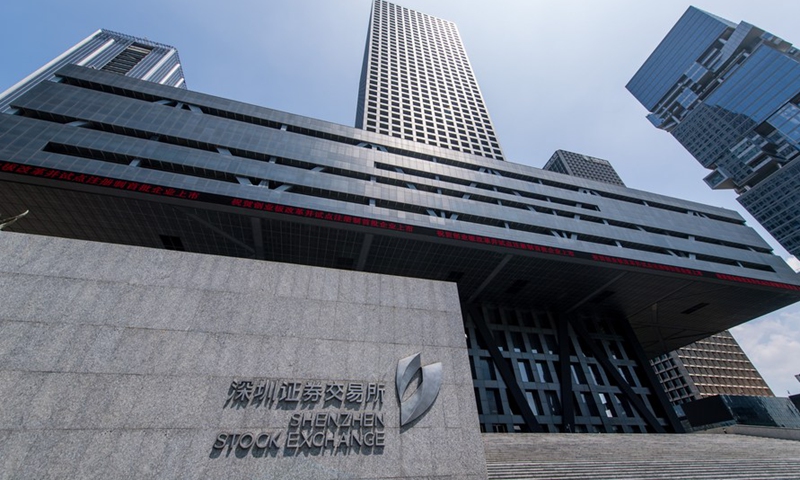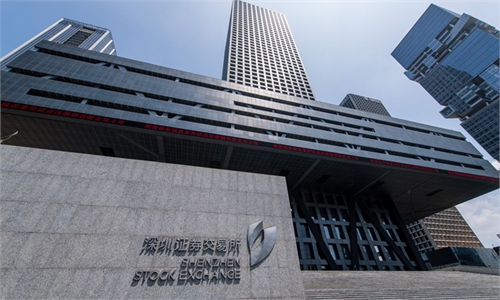
Shenzhen Stock Exchange in Shenzhen, south China's Guangdong Province Photo: Xinhua
China's A-share markets opened high on Tuesday following a strong recovery across the domestic tourism industry over the Qingming Festival holidays.
The benchmark Shanghai Composite Index rose 0.21 percent on Tuesday, while the Shenzhen Composite Index grew 0.38 percent. The NASDAQ-style board ChiNext increased 0.46 percent.
Stocks of semiconductor materials, military industrial, iron and steel unit performed strong.
Trading at the Hong Kong exchange closed on Tuesday due to Easter holiday.

Photo:VCG
"The tourism recovery during the Qingming Festival holidays was unexpected, with the recovery level even surpassing that of 2019, laying a solid foundation for China's economic recovery, in particular, the consumption revival, in post-COVID era," Dong Dengxin, director of the Financial Securities Institute at Wuhan University of Science and Technology, told the Global Times on Tuesday.
According to the data of the Ministry of Culture and Tourism, 102 million domestic trips were made during the holidays, an increase of 144.6 percent year-on-year and a recovery to 94.5 percent of the same period before the COVID-19 epidemic. Domestic tourism revenue reached 27.168 billion yuan ($4.14 billion), up 228.9 percent year on year, and recovered to 56.7 percent in the same period before the epidemic.
Tuesday also marks the merge of the Shenzhen Stock Exchange's main board and SME board, leaving the bourse with only two boards starting from Tuesday: the main board and the Nasdaq-style ChiNext board.
The merger sent the number of listed companies on the main board at the Shenzhen Stock Exchange accounting for 35 percent of the total number of listed companies on Chinese A-share markets, financial data provider Tonghuashun said. The total market capitalization of the mainboard at Shenzhen bourse would surpass 23 trillion yuan, or about one-third of the total of A-share markets.
The merger of the Shenzhen bourse put no huge market volatility on Tuesday and would make no short-term impacts for investors, Dong said.
"In longer term, the merge improved the inclusiveness of the Shenzhen Stock Exchange, which would allow companies to start listing again on the main board, which has not seen an IPO in nearly 20 years," Dong noted, calling the merge a win for institutional innovation.
Concerning the obstruction and risks of listing in the US stock market, some Chinese firms gradually turn their eyes to the Hong Kong and A-share stock markets, which can both satisfy the listing demands for Chinese companies, according to Dong.
"The reform and innovations taken by A-share markets mean it will be more open and comprehensive," he said, estimating more and more Chinese companies would choose Hong Kong or the Chinese mainland markets as their priority listing option.
The A-share markets edged down during the lunchtime break, with the Shanghai Composite Index dropping 0.32 percent, Shenzhen Composite Index down 0.49 percent and ChiNext 1.05 percent.



